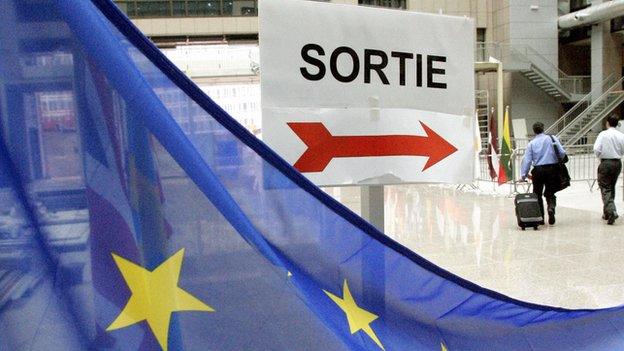EU referendum: Watchdog urges changes to question
- Published
- comments
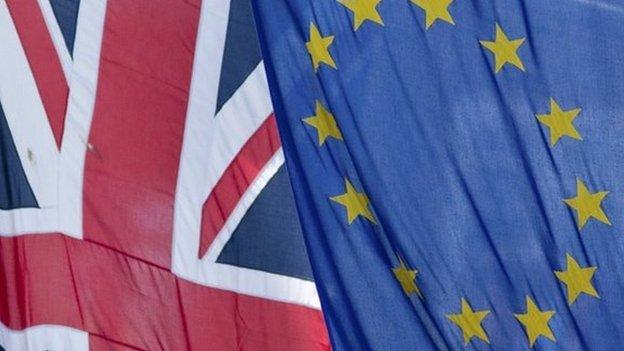
The elections watchdog has recommended a change to the question to be put to voters in a future EU referendum.
The Electoral Commission said the wording proposed by ministers - "should the United Kingdom remain a member of the European Union?" - could be perceived as biased to the status quo.
It has proposed adding the words "or leave the European Union?"
The government has said it will accept the changes although the final decision will be made by Parliament.
However, the development has been welcomed by those campaigning to exit the EU.
The vote on the UK's membership of the European Union is due to take place before the end of 2017.
If the changes were made the options for voters in the referendum would be "Remain a member of the European Union" or "Leave the European Union" rather than the Yes/No options in the existing wording.
The watchdog said it was recommending the rethink after consulting members of the public, campaigners and academics.
While in its current form, the question was "easy for people to understand and answer", the watchdog said that by only setting out the "remain" option and the "yes" response, it could "encourage voters to consider one response more favourably than the other" - that option being the status quo.
'Perception of bias'
This, it warned, could potentially raise issues about the legitimacy of the eventual result, particularly in the eyes of those campaigning to leave the EU.
The amended question, it argued, "would not cause comparable concerns about neutrality, whilst also being easily understood".
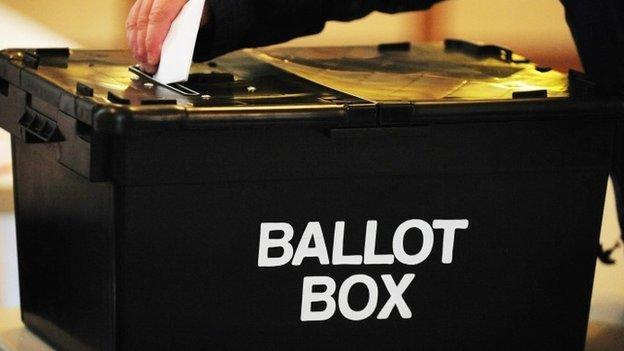
The vote could be held as early as next year
"Any referendum question must be as clear as possible so that voters understand the important choice they are being asked to make," said its chair Jenny Watson.
"We have tested the proposed question with voters and received views from potential campaigners, academics and plain language experts."
"Whilst voters understood the question in the Bill some campaigners and members of the public feel the wording is not balanced and there was a perception of bias.
"The alternative question we have recommended addresses this. It is now for Parliament to discuss our advice and decide which question wording should be used."
Referendum bill
Ms Watson said it was standard practice for the watchdog to recommend changes to referendum questions and it showed the process was working normally.
MPs will consider the issue when they return from their summer recess next week as part of legislation paving the way for the vote. But ministers said they would table changes to the EU Referendum Bill to enact the new wording.
"The prime minister's objective has always been clear - to give people a very clear and simple choice," a No 10 spokeswoman said.
"We believe that will still be achieved with the recommendation from the Electoral Commission today."
UKIP leader Nigel Farage said the change was welcome, tweeting: "I'm in no doubt that the Yes/No offering was leading to great confusion and that Remain or Leave is much clearer. That, combined with a more explicit question, is the right direction of travel."
Should the wording be changed, it will cast doubt on the approach of the embryonic Yes and No campaigns.
'Heat and light'
Although the campaigns have yet to be formally launched, it had been assumed that they would campaign under the banner of yes or no as in recent referendums on Scottish independence and the future of the UK voting system.
The UK Independence Party said on Tuesday that it would launch its own 'Out' campaign and that it expected two similar non-party groups formed by lobbyists and business figures to eventually merge.
The watchdog has also recommended a change to the wording of the Welsh language version of the question.
Meanwhile, the Archbishop of Canterbury has warned against unnecessary rancour in the debate over Europe, saying there will be "thoughtful and committed people, including Christians on both sides" of the argument.
"There will be talk of national sovereignty, of national confidence, of repatriation of laws, or being bound by European laws over which we have no control," Justin Welby said, as he marked the launch of the Church's new re-imagining Europe website.
"The only certainty is that there will be much heat, probably slightly less light, but that it is a hugely important decision."
- Published1 September 2015
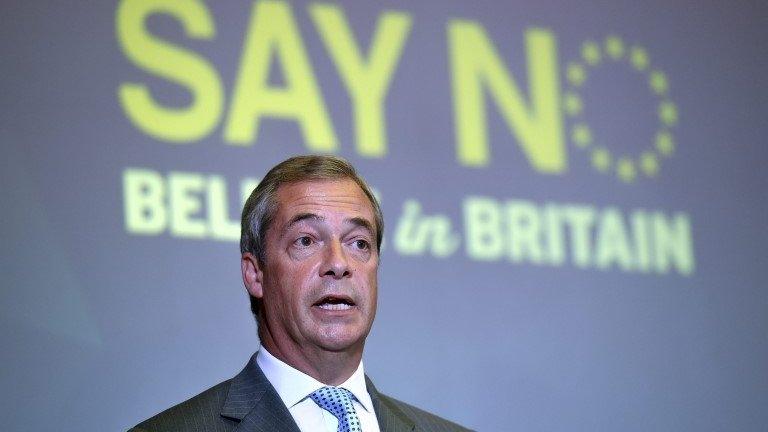
- Published30 December 2020

- Published20 February 2016
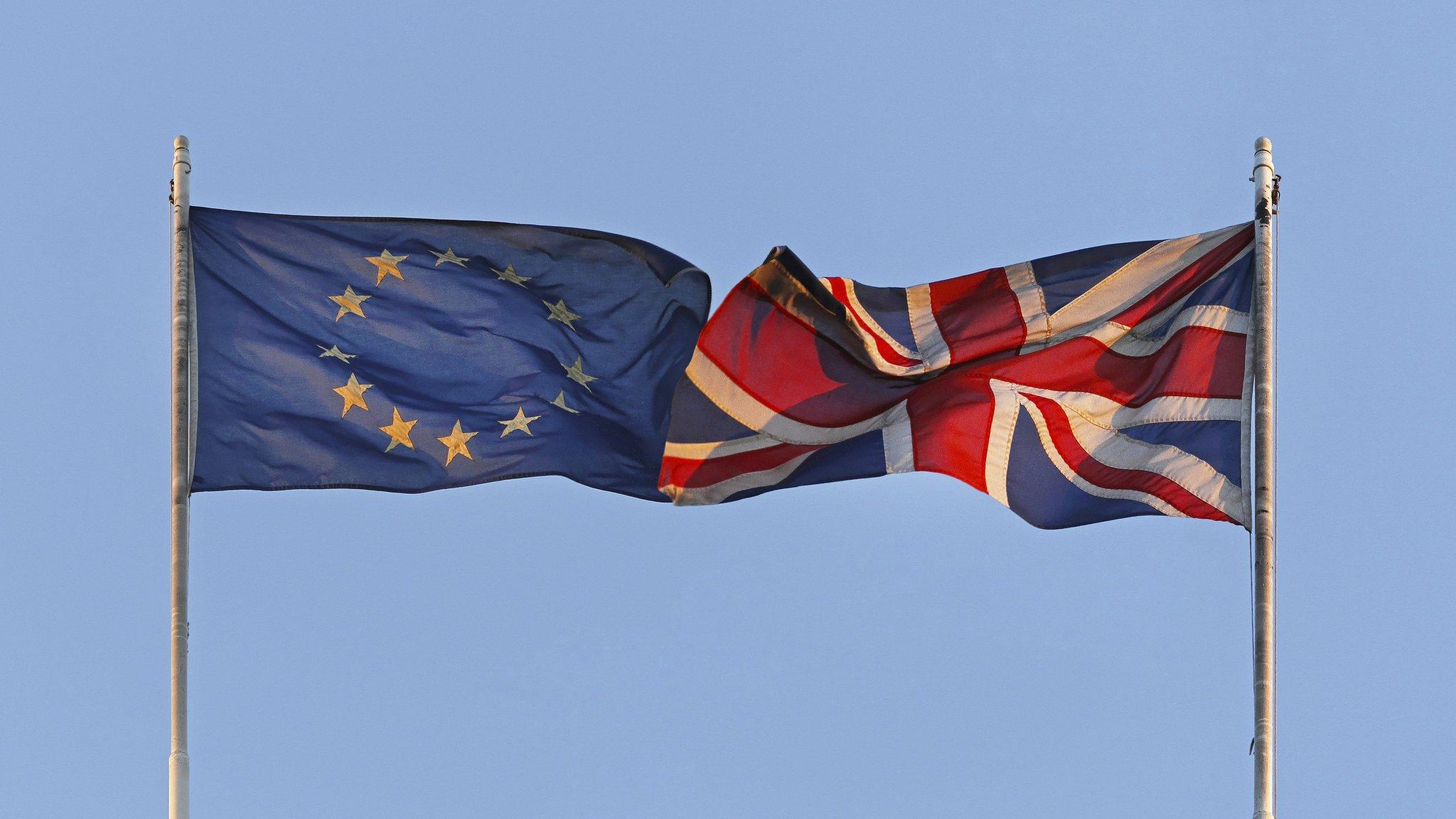
- Published26 May 2016
